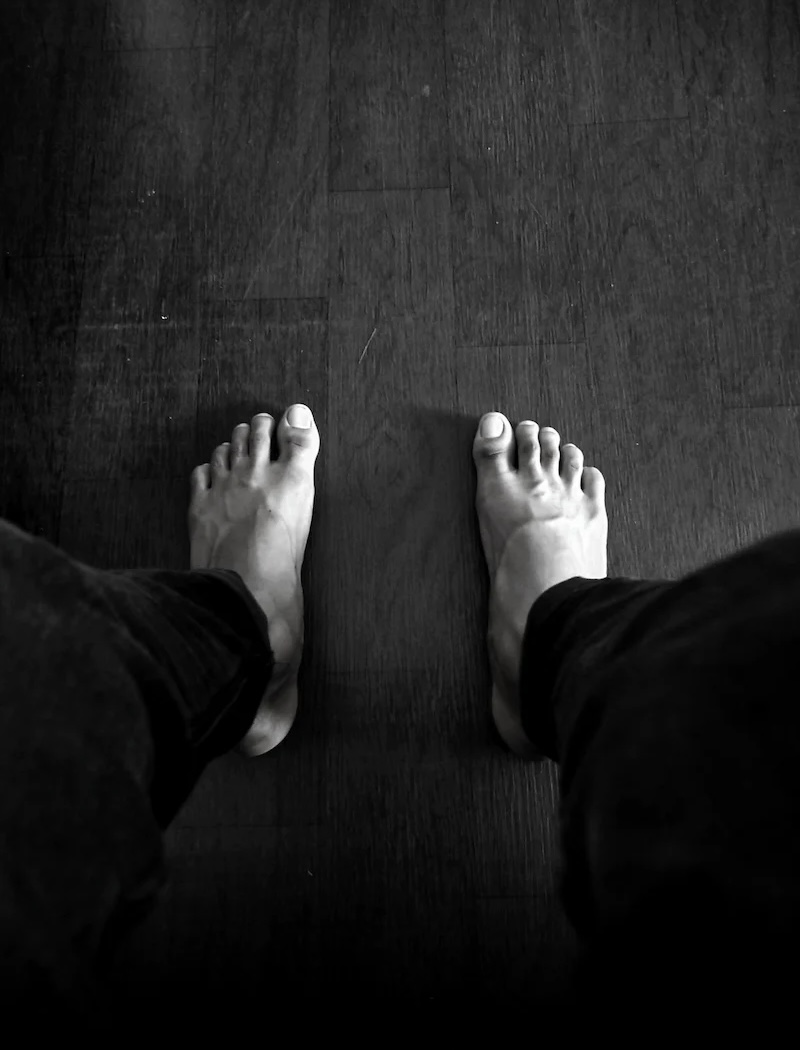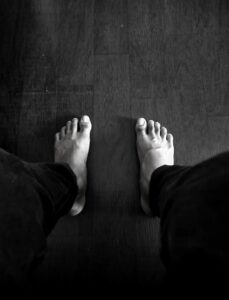
Feet are affected by aging.
Some parts of the body show more visible signs of getting older.
The face develops wrinkles.
Hair begins to go gray or white ... or it leaves altogether.
Although these aspects of aging tend to receive the most attention, getting older can lead to more functional rather than merely cosmetic issues.
According to a recent VeryWell Health article titled "How Aging Affects Your Feet," people often neglect to consider how getting older impacts their feet.

Certain health conditions can negatively impact feet.
Feet are important.
Think walking, running, standing, and balancing.
They carry the whole weight of the body when a person is not sitting.
This stress and strain over the years can lead to foot problems.
When feet have problems, the effects extend to the knees, hips, and lower back.
What are common aging problems affecting feet?
Dry Skin.
The skin is a vital organ.
It provides a protective barrier against bacteria and germs outside of the body.
As people get older, their skin tends to have less collagen.
If people consistently fail to care for their feet through daily moisturizing, the skin can become dry, cracked, and calloused.
When this happens, bacteria can enter the tissue and create an infection.
This is especially problematic for those with diabetes, who are more prone to severe cellulitis infections.
Even if no infection develops, cracked feet can lead to discomfort and pain when standing or walking.
Flat Feet.
Over decades of use, ligaments in your feet start to stretch.
This leads to lowering the arch in your foot and the condition pes planus.
Pes planus is more often known as flat feet.
What problems can this condition cause?
Just ask me, because I have got them.
Because it can alter the angle of your foot, your foot may pronate excessively and lead to an increase in foot and ankle sprains from a loss of stability.
Can you say "arch supports"?
Shortened Achilles Tendon.
Tendons need to be hydrated to function well.
Their purpose is to connect bone and muscle.
Aging often causes tendons to lose water.
When this happens, tendons can become shortened, leading to changes in gait and exacerbating flat feet.
If your Achilles tendon has shrunk, you will be less capable of flexing your toes, midfoot, or ankles.
Why?
The Achilles tendon connects the heel bone to the calf muscle.
Without routine stretching of this tendon, you will have an increased risk of rupturing or tearing the tendon through overexerting the tissues in actions like jumping or running up inclines or stairs.
Hammertoe.
When individuals wear high heels or narrow shoes, the toes are often forced into the toe box.
When this happens, the joint of one or more toes can bend abnormally, causing a hammertoe.
These bends are permanent unless surgery is undergone to realign the joints in the toes.
Yikes!
Hammertoes can cause corns, calluses, discomfort, pain, swelling, and stiffness in the toe joints.
Toenail Changes.
Toenails change their consistency as people get older.
While caring for toenails can improve their appearance, toenails will still be prone to becoming brittle and thicker.
Consequently, they can be more challenging to maintain and cut.
Some other medical conditions like onychomycosis, peripheral artery disease (PAD), and hypothyroidism often lead to changes in toenails.
Seborrheic Keratosis.
Although these lesions on feet, toes, and ankles are commonly mistaken for warts, they are distinct.
They are often found on the top area of the feet and are not painful.
Instead, they are itchy and can be easily irritated by footwear.
Arthritis.
Osteoarthritis impacts about 13 percent of women and 10 percent of men older than age 60.
Although this type of arthritis is formed from constant wear and tear, those with bunions, hammertoe, and obesity are more likely to develop it in their feet.
Another type of arthritis commonly affecting the feet of seniors is gouty arthritis.
Gout leads to inflammation and an accumulation of uric acid crystals around joints.
These crystals and inflammation cause acute pain in the big toe and can be debilitating.
Circulatory Problems.
Edema involves the swelling of tissues.
This swelling often comes from inadequate circulation.
As a result, fluid builds up in the feet and ankles.
Cirrhosis, chronic kidney disease, congestive heart failure, and liver disease are often precursors to edema in older adults.
Although it is impossible to avoid all impacts of aging, you can take care of your feet by taking better care of your overall health.
Reference: VeryWell Health (July 19, 2023) "How Aging Affects Your Feet"
REMEMBER: “The choice of a lawyer is an important decision and should not be based solely upon advertisements.”
This statement is required by rule of the Supreme Court of Missouri.
